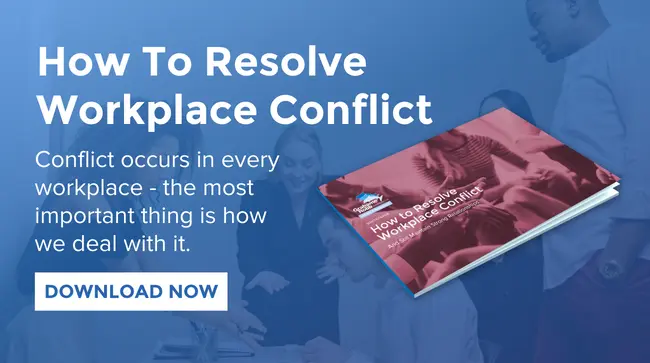
Are You Lacking New Year’s Resolve at Work?
For many of us, this time of year turns our attention towards creating positive changes in our lives. Some people’s New Year’s resolutions are focused on personal changes such as a new health regime or taking up a new hobby. For others, the focus is placed upon tackling issues in the workplace. We write lists and tell friends and family over the Christmas break that things are going to change when you get back to work. Yet, when we’re back in the office, we slip into the old routine and leave the crucial conversations unsaid.
According to research by our US partners, VitalSmarts, 69% of people who avoid confronting colleagues are avoiding issues surrounding accountability and half say the reason for shying away from these discussions about behaviour, expectations or performance is that they are afraid of negatives outcomes.
The most damning statistic of all from the research is that 93% of the respondents said that not having these conversations has negatively affected the quality of their work life. Despite the best intentions, another New Year’s resolution goes unresolved.
So, what are the main reasons for avoiding these conversations?
- 50% are afraid of negative outcomes such as entering into an argument, causing friction or, most severely, getting fired
- 16% don’t know how to start, hold or finish the conversation
- 10% can’t find a good time to talk
- 10% don’t think the other person will care about the problem.
Here are our tips for overcoming these difficult barriers to creating a positive work life:
- Master the “hazardous half minute.” Survive the first thirty seconds—when most accountability conversations fail—by creating safety. When you help people feel psychologically safe, they drop their defences and listen. When you don’t, they resist your influence and either clam up or blow up (silence or violence).
- Stick to the facts. Avoid false conclusions about why someone let you down—such as selfishness, laziness, or incompetence—by starting your crucial conversation with the facts not judgments or accusations. Describe the gap between your expectations and what you observed.
- Take charge of emotions. When someone lets you down, avoid the tendency to feel disappointed and upset. Try to give the person the benefit of the doubt while you prepare to talk with him or her in a way that helps you draw accurate conclusions.
- Pick the issue you really care about. Most problems come in large bundles. A single infraction may include anything from a procedural violation to insubordination. Address the most important issue—not the easiest—and resolve the problem that really matters.
By Matthew Campbell, Marketing Manager, Grahame Robb Associates Ltd
Image Source: Canva



